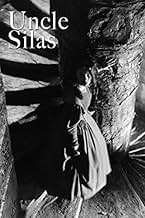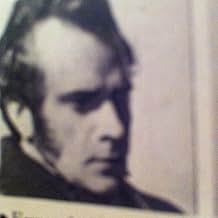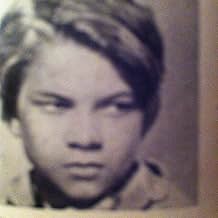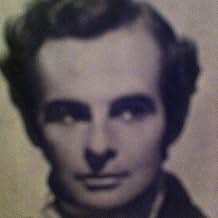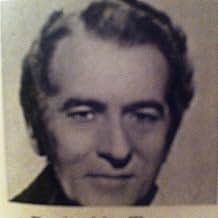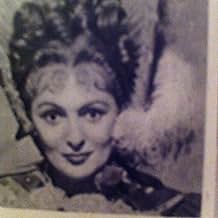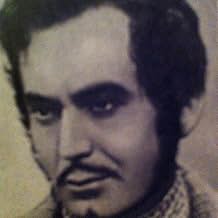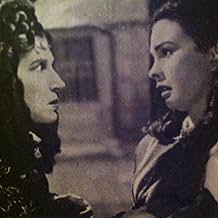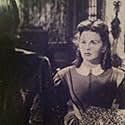AVALIAÇÃO DA IMDb
6,6/10
851
SUA AVALIAÇÃO
Adicionar um enredo no seu idiomaFollowing her father's death, a teenage British heiress goes to live with her guardian uncle--who is broke and schemes to murder her for her inheritance.Following her father's death, a teenage British heiress goes to live with her guardian uncle--who is broke and schemes to murder her for her inheritance.Following her father's death, a teenage British heiress goes to live with her guardian uncle--who is broke and schemes to murder her for her inheritance.
- Direção
- Roteiristas
- Elenco e equipe completos
- Produção, bilheteria e muito mais no IMDbPro
Enredo
Você sabia?
- CuriosidadesThis film's earliest documented US telecast took place in Los Angeles Monday 3/27/50, leading off Triple Feature Theatre on KECA (Channel 7), hosted by Art Baker.
- Erros de gravaçãoThe length of Jean Simmons' ringlets change from one shot to the other.
- Citações
Uncle Silas Ruthyn: And here you are! One of my hopes fulfilled.
- Versões alternativasThe American release, under the title, "The Inheritance" is six minutes shorter than the original British version, titled "Uncle Silas," after the film's source novel.
- ConexõesVersion of El misterioso tío Sylas (1947)
- Trilhas sonorasMy Hat, It Has Three Corners
(uncredited)
American traditional song
Played in the background during the scene in the London hotel.
Avaliação em destaque
I saw this film years ago as "The Inheritance," and I never forgot it. When I read the description of "Uncle Silas," I thought it sounded suspiciously like "The Inheritance" - after all, did Jean Simmons go around playing one young heir after another? After seeing it again, I'm not surprised I remembered it.
"Uncle Silas" is a Gothic thriller, based on a novel by Sheridan Le Fanu, and directed by Charles Frank, who also directed "So Long at the Fair," another wonderful film. "Uncle Silas" is the story of a young heiress, Caroline Ruthyn (Simmons) who is sent to live with her uncle (Derrick De Marney) in a dark, eerie mansion after her father's death. Her father adored his brother, who was once accused of murder, and has made Carolina a ward of Silas. However, as he's dying, he tries to change this provision, but dies before he can do it. Silas, with the help of Caroline's ex-governess (Katina Paxinou) plan to get rid of Caroline, since the inheritance then passes to him.
The acting of especially DeMarney and Paxinou is fairly over the top, but I believe this was intentional on the part of the director to give it that good old scary Gothic feel. Sinister characters often aren't very subtle in Gothic books. Jean Simmons is lovely as Catherine - vulnerable, sweet, and naive, making her a perfect target of danger.
This story was remade as "The Dark Angel" back in the '80s - I remember the sets being completely overdone, a kind of Gothic version of Liberace's house. I don't remember much else, but I'm sure O'Toole was marvelous as Silas.
As others have pointed out, the British version is recommended.
"Uncle Silas" is a Gothic thriller, based on a novel by Sheridan Le Fanu, and directed by Charles Frank, who also directed "So Long at the Fair," another wonderful film. "Uncle Silas" is the story of a young heiress, Caroline Ruthyn (Simmons) who is sent to live with her uncle (Derrick De Marney) in a dark, eerie mansion after her father's death. Her father adored his brother, who was once accused of murder, and has made Carolina a ward of Silas. However, as he's dying, he tries to change this provision, but dies before he can do it. Silas, with the help of Caroline's ex-governess (Katina Paxinou) plan to get rid of Caroline, since the inheritance then passes to him.
The acting of especially DeMarney and Paxinou is fairly over the top, but I believe this was intentional on the part of the director to give it that good old scary Gothic feel. Sinister characters often aren't very subtle in Gothic books. Jean Simmons is lovely as Catherine - vulnerable, sweet, and naive, making her a perfect target of danger.
This story was remade as "The Dark Angel" back in the '80s - I remember the sets being completely overdone, a kind of Gothic version of Liberace's house. I don't remember much else, but I'm sure O'Toole was marvelous as Silas.
As others have pointed out, the British version is recommended.
- blanche-2
- 3 de nov. de 2009
- Link permanente
Principais escolhas
Faça login para avaliar e ver a lista de recomendações personalizadas
Detalhes
Bilheteria
- Orçamento
- US$ 1.000.000 (estimativa)
- Tempo de duração1 hora 43 minutos
- Cor
- Proporção
- 1.37 : 1
Contribua para esta página
Sugerir uma alteração ou adicionar conteúdo ausente

Principal brecha
By what name was A Cativa do Castelo (1947) officially released in India in English?
Responda
